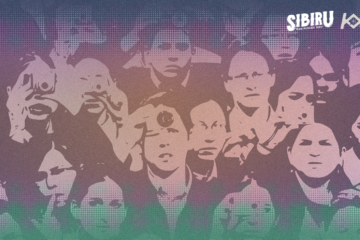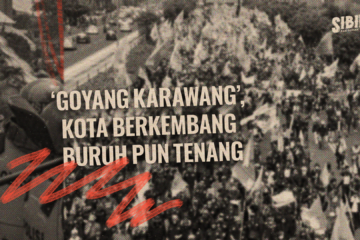No, we’re beyond doomed—don’t even talk about miracles, because none would ever descend to rescue us. We’re treated like expendable trash in our own homeland, like rats crawling in the gutters, while those in power gorge themselves on the very money we slave away to earn. And yet they dare forget that it is we, the very people they trample, who fill their pockets with salaries. How much more tragic could it be to live in a country that despises its own citizens, while we’re left screaming for dignity, only to be silenced as if we’re worth nothing?
This too shall pass (From a nation that cries out)
This is more than an isolated incident; it’s a collective cry from countless individuals who feel marginalized and suffocated by policies that appear to serve only a privileged few. The chasm between the governing class and the governed has never been wider, exacerbated by policies that disproportionately burden ordinary citizens while offering lavish perks to the elite. A stark example of this economic disparity is the implementation of regional tax hikes, some of which have soared by an astonishing 1000%. Such increases, reported by Reuters on August 22, 2025, are pushing families, who are already struggling, into even deeper financial despair. These aren’t minor adjustments; they are seismic shifts that destabilize households and exacerbate existing inequalities.
Simultaneously, the public has been met with the shocking revelation, as reported by The Guardian on August 26, 2025, that members of parliament receive housing allowances of 50 million rupiah per month. This figure stands in stark contrast to the grim reality faced by millions who live paycheck to paycheck, constantly teetering on the brink of financial insecurity. The optics of such a generous allowances, while the populace grapples with soaring living costs and stagnant wages, only fuel public outrage and a pervasive sense of injustice.
These demonstrations are a clear expression of a deep-seated anger born of years of perceived neglect and economic hardship. They are a powerful rejection of a system where the benefits seem to flow upward, while the burdens cascade downward. The protests are a desperate plea for a more equitable society, where policies are crafted with the well-being of all citizens in mind, not just a select few. The collective voice rising from the streets demands accountability, transparency, and a fundamental reevaluation of priorities that have, until now, prioritized the elite over the everyday struggles of the people.
Affan Kurniawan, may your ride be easy. (As we won’t forgive them)
Don’t even start on the peak of what happened at the ongoing protests. On the night of 28 August, Affan Kurniawan, a sole 21 years old, 21 YEARS OLD, was killed beneath by the merciless crush of a Brimob (cough.. 1312) armored vehicle. Twenty-one—an age where dreams should be blooming, where life is meant to be lived forward, not snuffed out under steel and indifference. He was not a criminal, not a threat, not even a name the state should have feared. He was a rider. A son. A friend. A young man who woke up that morning with the same hope as millions of others. To work, to survive, to carve out a place in this country he called home. And yet, in the chaos of the protest, he was reduced to nothing more than another casualty, another statistic in the endless tally of state violence. But Affan was not just “collateral damage.” He is now a symbol of how cheaply this country treats its own people, how quickly it forgets that every uniform, every bullet, every armored truck is paid for by the very citizens it tramples on.
His death was not an accident. It is an indictment. Because when a 21-year-old dies beneath the wheels of power, the message is clear: in this system, the lives of the ordinary are expendable. And that is why the streets will not quiet down. That is why his name is being shouted in rage, painted on banners, whispered in grief. Because Affan’s death is not just the end of one young life; it is the tearing open of a wound that bleeds for an entire nation.
The country finds itself in a state of turmoil, where uncertainty and instability have begun to shape the rhythm of daily life. Corruption spreads like an invisible thread, weaving distrust between the people and those in power. The streets are filled with protests, voices of anger, and cries for justice, reflecting the pain of a society that is betrayed by the very institutions meant to protect it. Economic struggles weigh heavily on families, while inequality grows sharper, dividing communities into fragments. In moments like this, unity is tested, and the strength of national identity risks being overshadowed by chaos and disillusionment.
Amid such disorder, however, the words from the song Gugur Bunga — “Gugur satu tumbuh seribu, Tanah Air jaya sakti” — resound as a timeless reminder that even in the darkest hours, sacrifice does not end in silence. Every single life lost in the struggle becomes a seed for thousands more to rise, to continue the fight, and to rebuild what chaos has destroyed. The line reflects the unbreakable strength of a nation: when one falls, countless others are born with renewed determination. It calls upon the people to remember that no matter how severe the disorder, the homeland will endure and remain powerful, for its true strength lies not in its rulers alone but in the collective will of its people.
This spirit of resilience, drawn from both memory and sacrifice, proves that hope has not vanished. The struggles of those who stand for justice embody the message of Gugur Bunga itself: that freedom and dignity are never extinguished but multiplied through the courage of those who dare to fight for them. In this way, the survival of the nation does not rest solely on authority, but on the determination of its citizens to defend the land they call home. Though the present is heavy with hardship, the future still holds the possibility of renewal — a renewal built upon courage, sacrifice, and the unwavering belief that the nation, no matter how shaken, can and will rise once more.
Yet for such a future to exist, the truth must be spoken and the government must hear it, carved in fury and spat out in rage. You have dragged this nation to the edge of despair, feeding on greed while the people choke on dust. You sit in gilded halls built on the bones of the poor, deaf to the cries in the streets, blind to the hunger in the alleys. There will come a day when your thrones of lies collapse into ashes, and may you rot in hell for every stolen breath, every silenced voice, every life crushed under your cowardice. The nation does not belong to you, it never did — it belongs to the people, and the people will not forgive.
And to the people: open your eyes. The chaos that surrounds you is not a signal of the nation’s death but a call to awaken. Every voice that dares to shout, every step that defies silence, every act of courage is proof that you are the thousand born from one. You are the heartbeat that cannot be smothered, the force that corruption fears most. Do not surrender to despair, seize it, shape it, and turn it into fire. For this soil is sacred, this land is yours, and history will remember not the tyrants who ruled in greed, but the people who rose, stood unbroken, and reclaimed their nation.


